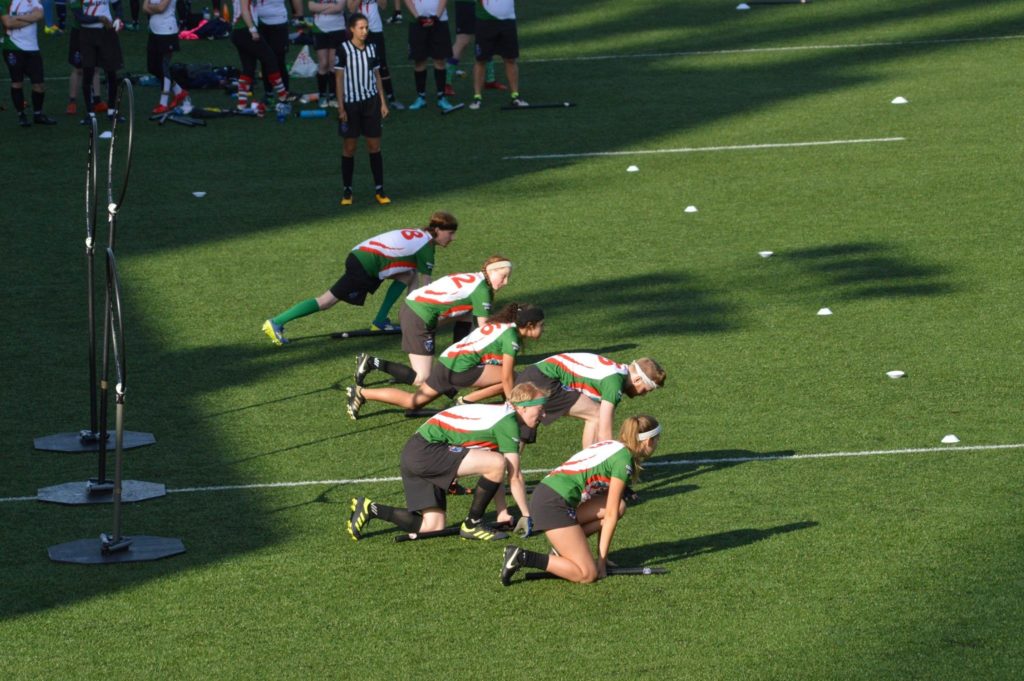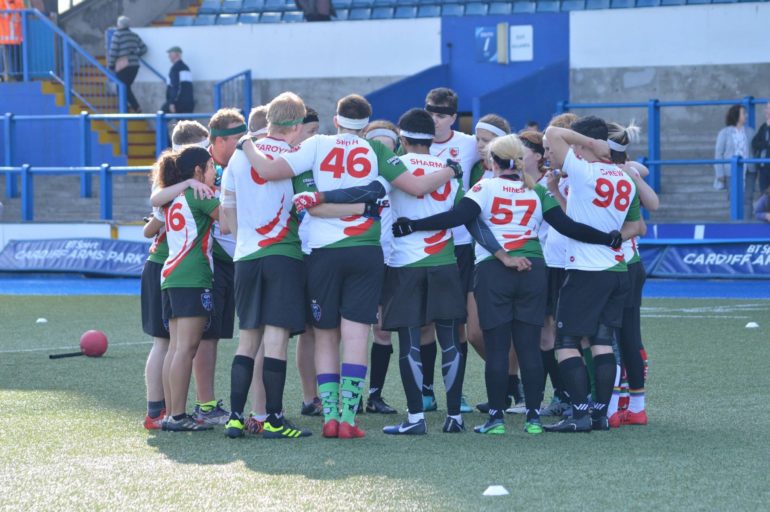QUIDDITCH is “offering something that mainstream sport just doesn’t,” according to Jack Lennard, director of the Quidditch Premier League.
Over the past few years, the sport has been redefining itself away from the Harry Potter franchise that gave birth to it, with more than 20,000 players across the globe.

“We’ve got to learn to fly, away from our parent,” said Ciaran Caple-Williams, 22, an MA International Relations student and founder of the Cardiff Crows, a fledgling quidditch team at Cardiff University.
Quidditch teams consist of 21 players, with seven on the field at one time. Each player holds a broom between their legs, with the aim to throw the quaffle, a semi-deflated volleyball, through the hoops at the other end of the field.
They have to avoid the bludgers, dodgeballs, thrown at them by the opposition to avoid getting temporarily knocked out of the game. If the snitch, a sock with a tennis ball in it attached to the snitch runner’s shorts, is caught the game ends and that team wins.
The teams operate on a rolling subs basis, with a rule that no more than four players of a single gender can be on a team at once. It is this “‘rule of four” that gives the sport such a broad appeal, particularly in the LGBTQ community.
“I owe quidditch for who I am, who I have always been on the inside,” Ciaran, who identifies as bigender, told me when speaking of the freedom they felt when taking part in the mixed-gender sport.

Heather Dimmer, 22, a non-playing referee for the Swansea Swans said: “It’s honestly the first sport I’ve felt included in. I’ve never been a fan of restrictions by gender, very often they just make me feel inferior. Quidditch doesn’t have that.”
The Quidditch Premier League, an annual competition taking place in the summer, was held at Cardiff Arms Park this year, with the London Monarchs taking this year’s title. It was the first time a quidditch tournament had been held in a stadium, helping to raise the profile of the sport in Wales.
With the Quidditch Premier League welcoming seven new teams from across the UK and Europe next season, the sport looks to be on an upward trajectory and Ciaran hopes new players will continue to be found.
“We’re getting to a generation where they might not have grown up with Harry Potter as much,” said Ciaran, who believes quidditch has potential to grow, but that more grassroots initiatives were needed in schools.
With the first youth quidditch tournament taking place at Liverpool Hope University on Friday, November 9, perhaps the next generation of players will be picking up their brooms this weekend.
If you would like to give quidditch a try the Cardiff Crows are looking for players. Training takes place on Wednesday and Saturday, and the team can be contacted through their facebook page.
Details of upcoming fixtures for The Quidditch Premier League can be found on their website or twitter.



